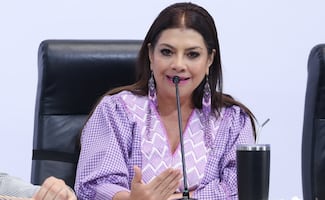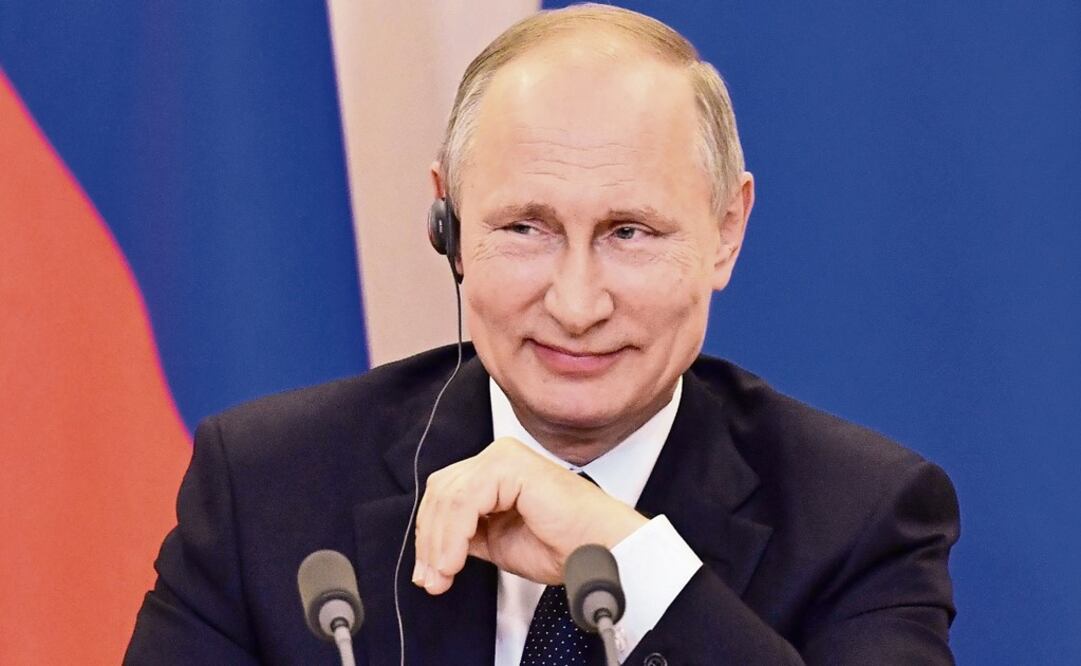Más Información

Trevilla Trejo: mantengamos el arraigo nacional como inspiración; se debe seguir fomentando el patriotismo, dice

Guerra interna por nuevo liderazgo, vaticinan especialistas tras muerte de "El Mencho"; nuevo líder del CJNG no será del círculo cercano

Comerciante de la Central suple a Sergio Mayer en la Cámara de Diputados; rinde protesta como diputado

Cabeza de Vaca sigue prófugo, determina la Corte tras desechar amparo que lo protegía; exgobernador de Tamaulipas se queda en EU

Sarampión en México: Enero y febrero de 2026 registran el 65% de contagios de todo 2025; Ssa reporta 10 mil 941 casos confirmados

Tras abatimiento de “El Mencho" Brugada garantiza seguridad en CDMX para Mundial 2026; asegura que el domingo no hubo incidentes de violencia
Today, Russian President Vladimir Putin proposed constitutional changes, which would give him leeway to extend his grip on power after leaving the presidency , and picked a new prime minister after Dmitry Medvedev and his cabinet resigned.
The dramatic moves were widely seen as preparing the ground for 2024 , when Putin , now 67, is constitutionally obliged to leave the presidency after occupying the Kremlin or the prime minister’s job continuously since 1999.
Surprisingly, Putin said he wanted Mikhail Mishustin , head of the tax service, to be the next prime minister . Mishustin , whose candidacy will be examined by parliament on Thursday, has a relatively low profile and had not been spoken of as a possible candidate.
Critics have long accused Putin of plotting to stay on in some capacity to wield power over the world’s largest nation, and one of its two biggest nuclear powers , after he steps down. Putin, a former KGB officer , has always kept mum on his plans.
But the constitutional changes he set out, which he suggested should be put to a referendum , would give him the option of taking an enhanced role as prime minister after 2024 or a new role as head of the State Council , an official body he said he was keen to build up. He could even become the speaker of a new, supercharged parliament.
Under his proposed constitutional changes, the powers of the presidency would be diminished and those of the prime minister’s office beefed up.
Opposition politician Leonid Volkov said it looked as though Putin was digging in.
“It’s clear to everyone that everything is going exclusively toward setting Putin up to rule for life,” Volkov wrote on social media. Dmitry Gudkov, another opposition politician, said Putin had decided to re-arrange everything around him now rather than wait until closer to 2024.
“Constitutional coups like this occur and are completely legal,” wrote Gudkov .
Under the current constitution , which sets a maximum of two successive terms, Putin is barred from immediately running again, but his supporters find it hard to imagine Russian political life without him.
It was unclear when a referendum on the changes might be held or when the changes could take effect, but Putin told the political elite in his annual state-of-the-nation speech that he favored changing the constitution to hand the State Duma , the lower house of parliament, the power to choose the prime minister and other key positions.
Putin’s proposed constitutional reforms indicated he was working to carve out a new position for himself after his term ends.
“These are very serious changes to the political system ,” Putin said.
“It would increase the role and significance of the country’s parliament (...) of parliamentary parties, and the independence and responsibility of the prime minister.”
Putin also argued that Russia would not remain stable if it were governed under a parliamentary system . The president should retain the right to dismiss the prime minister and Cabinet ministers, to name top defense and security officials, and to be in charge of the Russian military and law enforcement agencies, he said.
Putin has been in power longer than any other Russian or Soviet leader since Josef Stalin , who led from 1924 and until 1953.
Political analyst Kirill Rogov said that Putin intends to stay in charge while re-distributing powers between various branches of government.
“Such a model resembling the Chinese one would allow Putin to stay at the helm indefinitely while encouraging rivalry between potential successors,” Rogov observed.
gm
Noticias según tus intereses
[Publicidad]
[Publicidad]








